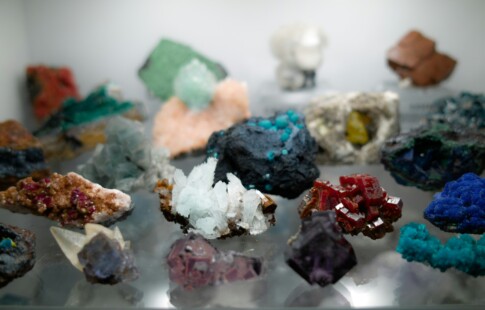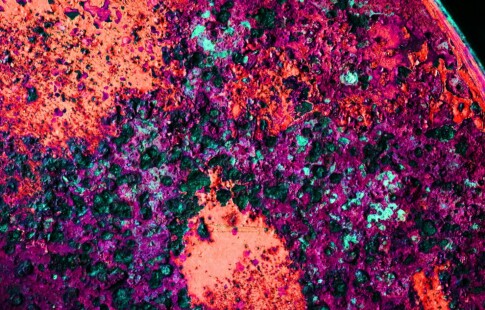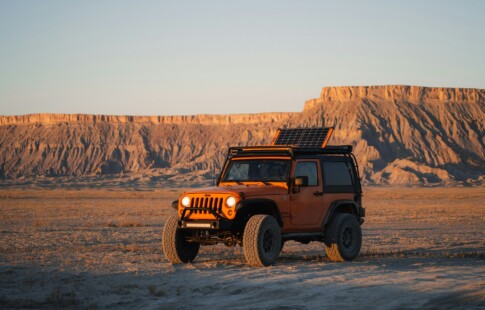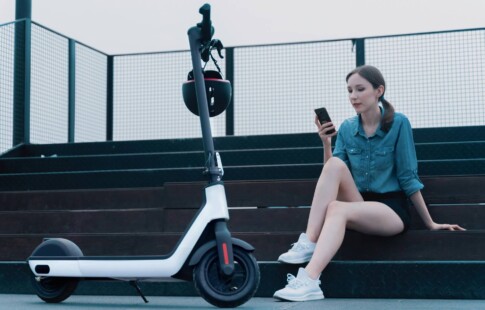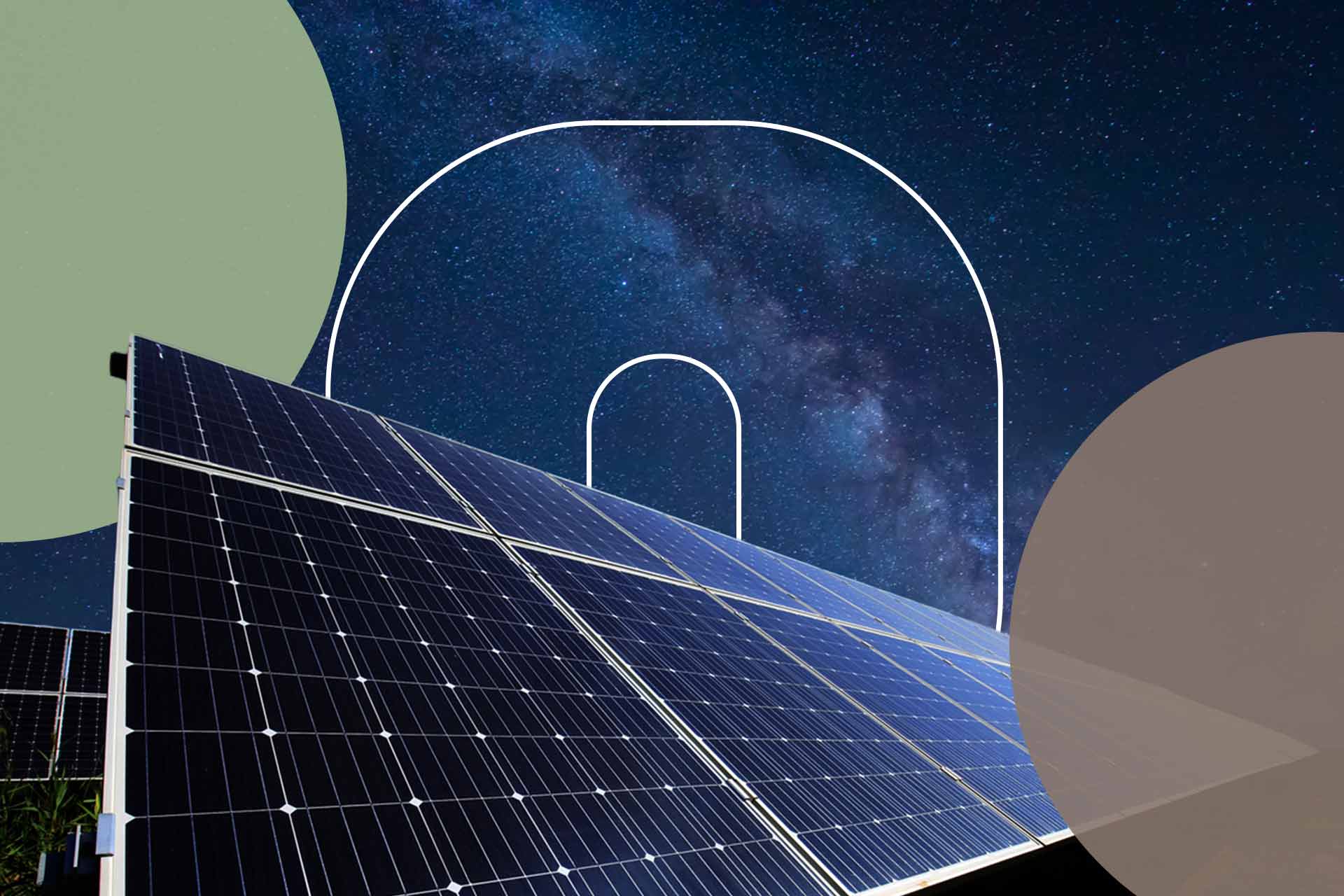
Do Solar Panels Work at Night?
We are reader-supported. When you buy through links on our site, we may earn affiliate commission.
With an increase in usage of renewable energy sources, solar panels have been popping up on roofs of homes and businesses all across the country. Even farmers are adding solar to their already-established farms to add an extra stream of income and power their equipment.
As you know, “solar” relates to the sun. However, when the sun goes down, do the solar panels continue to work at night? It’s a question that many people ask before they decide to install solar for their homes. Before diving into the answer, you should understand the basics of solar energy and technology first.
What Is Solar Energy?
The sun is a powerful source of energy. It only takes an hour and a half of sunlight to power the world for one year.
People have been harnessing the power of the sun since humans came into existence. It’s been used to heat water and cook. Plants use the sun to grow. Without the sun, nothing would exist, and the planet wouldn’t be able to function.
Solar energy comes from the radiation given off by the sun, also known as light. So the light you see when you wake up in the morning is energy. Various locations on Earth receive different amounts of sunlight during the year. It varies depending on the time of day, location, season, landscaping and weather patterns.
When that light hits solar panels, the panels have these incorporated technologies that convert the light into energy that people can use for electricity and other applications.
How Do Solar Panels Work?
Photovoltaics, or PV, and concentrating solar-thermal power, or CSP, are the two main types of solar panels used today.
Photovoltaics
The solar panels you likely have seen use photovoltaics. As the sunlight shines onto the solar panel, the photovoltaic cells in the panel absorb the energy. That energy creates an electric current to power your electronics and other devices in your home.
One PV cell can generate one to two watts of power, so multiple are put together in chains or modules to create the solar panels. Factors such as wavelength, temperature and reflection all can affect the conversion efficiency. As long as there is sunlight, though, the panels should be able to produce energy.
Concentrated Solar-Thermal Power
Rather than having cells to absorb sunlight, CSP used mirrors that reflect sunlight. The mirrors concentrate the sunlight onto receivers, which take the light as energy and change it into heat. Typically, larger industries use this type of solar energy.
From there, the generated heat, or thermal energy, can either be stored for later use or converted into electricity.
Do Solar Panels Work at Night?
Solar panels are an investment, and you want to ensure that you’ll have energy when the sun is shining and even when it isn’t shining. Since solar panels need the sun’s energy to create electricity, that means the answer is no, solar panels do not technically work at night.
Without sunlight, the photovoltaic cells have nothing to absorb. At night, the sun simply doesn’t shine. However, you don’t have to worry about not having enough energy to last you through those dark hours of the day.
Fortunately, solar panels work all day when there is sunlight available. During the day, the panels absorb enough energy to last you many hours. You can store the excess energy through net metering or solar batteries. This ensures you have enough power to last you through the night.
When you install solar panels, you have the option of connecting to the primary grid, which would offer net metering. As the panels produce electricity, the power goes back to the grid. The electric company gives you credits for the power, which can be used at night when you need electricity. Plus, the grid connection ensures you’ll never be without electricity.
Solar batteries are the alternative to net metering to have electricity at night. They store energy throughout the day for you to use whenever needed. It gives you access to your own electricity without having to rely on the grid.
A New Development: Anti-Solar Panels
A possibility for a type of “solar” panel that works at night is underway. A nighttime photovoltaic cell may be able to continue to generate power even when the sun isn’t shining.
Jeremy Munday, a professor at UC Davis, has been working on this development for a while. It’s the reverse of a traditional solar cell — the thermoradiative cell radiates heat to the cold night sky. It emits light because it’s warmer than outer space. Then, the cell would absorb that heat and convert it into electricity, similar to the solar cell.
While further research is necessary for this, it could be possible to generate electricity at night.
The Future of Solar
Although solar panels do not work at night, you don’t have to worry about not having energy once the sun falls beneath the horizon. Solar panels spend all day absorbing sunlight, and you have the option to store that energy into the grid, a solar battery or both.
In the future, perhaps solar panels that work at night will be available, but for now, keep relying on the powers of the sun during the day for your energy needs!
Share on
Like what you read? Join other Environment.co readers!
Get the latest updates on our planet by subscribing to the Environment.co newsletter!
About the author

Jane Marsh
Starting from an early age, Jane Marsh loved all animals and became a budding environmentalist. Now, Jane works as the Editor-in-Chief of Environment.co where she covers topics related to climate policy, renewable energy, the food industry, and more.


